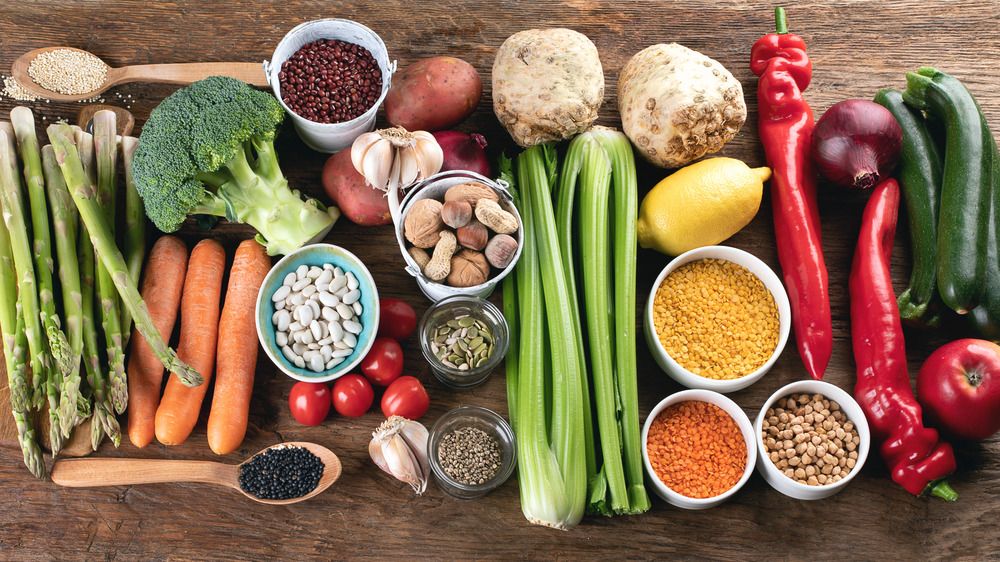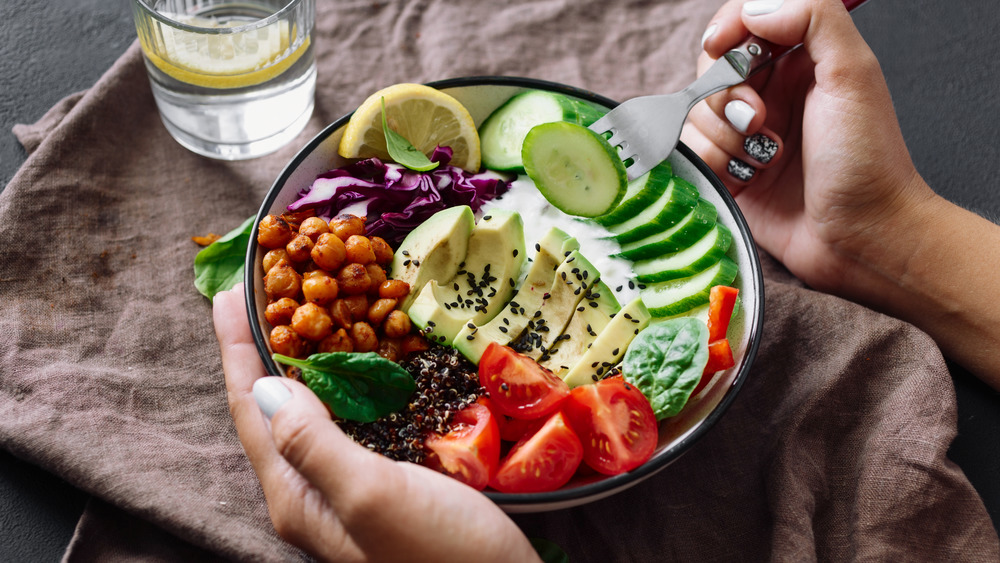Why A Plant-Based Diet Is Different From Going Vegan
In the world of plant-based diets, there are a lot of labels circulating these days, and some of them seem to be saying the exact same thing, just using different words. Or are they?
You could be following a plant-based diet, a vegan diet, or a vegetarian one. And the breakdown of diets that fall under the vegetarian label is dizzying (see Vegetarian Nation). But why confuse things? Let's zoom in more closely on simply breaking down the difference between what is meant by "plant-based," versus "vegan."
The term vegan was coined in 1944 by David Watson, a British animal-rights activist. He determined that, because vegetarians ate dairy and eggs, a new label — vegan — was needed to describe people who did not (via TIME). The concept was expanded to not only describe a diet that abstained from all animal products, including dairy products, eggs, and honey but to embrace an outlook on life which tries to avoid, as much as reasonably possible, any harm to animals whatsoever. So, veganism is not just a dietary choice, but a lifestyle based on a firm ethical stance. Most vegans won't wear leather shoes or belts, for example, or use cosmetics or other products that have been tested on animals.
Breaking down a plant-based diet
Nutritionally, veganism can be a healthy choice if a person is careful and intentional about planning meals to make sure all the nutritional bases are covered. But without some education and effort, it's not necessarily healthful. Dr. Christine Kirlew, an internal medicine physician at Piedmont Healthcare, says "Just because something is vegan doesn't mean it's healthy. If you're vegan, you can still technically eat vegan cookies, potato chips and other vegan junk food, which can be high in calories and low in nutrients. I recommend sticking to whole foods as much as possible" (via Piedmont Healthcare).
A plant-based diet, on the other hand, is substantially less restrictive. People usually choose plant-based eating for health or environmental, rather than strictly animal-rights reasons. Individuals on a plant-based diet may choose to eat some meat, fish, poultry, or animal-derived products like dairy and eggs. The emphasis is simply on a shift away from a diet that is meat-heavy, to one that is primarily plant-based. Plant-based diets also often emphasize whole, rather than processed foods.
Either way, since almost 90 percent of Americans don't consume enough fruits and vegetables (via Health), most of us would benefit from including more produce in our diets. As Dr. Kirlew points out, "Regardless of what meal plan you choose, everyone's diet should ideally consist of 50 percent vegetables."


